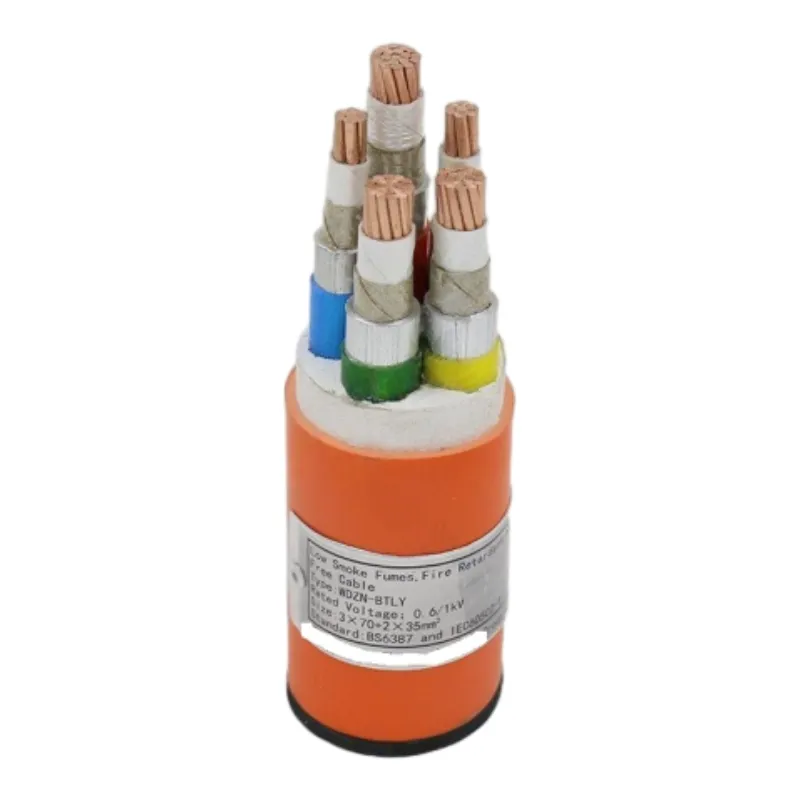Dec . 20, 2024 11:23 Back to list
control valve
Understanding Control Valves Essential Components in Process Control
Control valves are critical components in various industrial processes, providing precise regulation of fluid flow. They are widely used in sectors such as petrochemicals, water treatment, pharmaceuticals, and food processing. This article delves into the fundamentals of control valves, their types, applications, and importance in maintaining efficient process control.
What is a Control Valve?
A control valve is a valve used to control the flow rate or pressure within a system. By varying the opening of the valve, it can manipulate the flow of liquids or gases as needed. These valves are integral parts of automated control systems, where they respond to signals from a control system, such as a process controller or programmable logic controller (PLC).
Control valves are typically composed of four main parts the valve body, actuator, positioner, and control mechanism. The valve body houses the flow passage and is available in various configurations, including globe, ball, and butterfly designs. The actuator enables the valve to open or close based on external signals, while the positioner ensures that the valve reaches and maintains the desired position accurately.
Types of Control Valves
There are several types of control valves, each designed for particular applications
1. Globe Valves Known for their excellent throttling capabilities, globe valves are often used for flow regulation. Their design allows for a more linear flow characteristic, making them ideal for dynamic processes.
2. Ball Valves These provide a quick on/off control and are suitable for applications where tight shut-off and minimal flow resistance are essential. Ball valves are typically used in systems where speed is crucial.
3. Butterfly Valves With a simple design, butterfly valves allow for compact installation and offer moderate throttling capabilities. They are commonly used in large-scale systems where space or weight is a concern.
control valve

4. Pinch Valves These valves control flow by pinching a flexible tube, making them suitable for handling slurries and viscous materials. They offer seamless flow control, particularly in challenging environments.
Applications of Control Valves
Control valves play a vital role in various applications
. In the oil and gas industry, they are used to manage pressure in pipelines, ensuring smooth and safe transportation of resources. In water treatment facilities, control valves regulate the flow of water and chemicals, maintaining optimal conditions for purification.In the pharmaceutical industry, control valves are indispensable in maintaining sterile conditions while accurately dosing ingredients. Similarly, in food processing, they ensure that ingredients are delivered in precise quantities to maintain product consistency and quality.
Importance in Process Control
The significance of control valves extends beyond mere flow regulation. They contribute to process efficiency, safety, and environmental compliance. By ensuring that systems operate within designed parameters, control valves help prevent overpressure scenarios that could lead to catastrophic failures.
Moreover, they assist in conserving resources by optimizing flow rates, thus minimizing waste. In an era where sustainability is paramount, the effective use of control valves can significantly impact energy consumption and resource management.
Conclusion
Control valves are indispensable in modern industrial applications, facilitating precise flow and pressure control to enhance operational efficiency and safety. Understanding the different types of control valves and their applications can lead to more informed choices in system design and operation. As industries continue to evolve, the role of control valves will remain critical in achieving reliable and efficient process control, contributing to overall productivity and sustainability.
By harnessing the capabilities of control valves, industries can not only improve their processes but also ensure compliance with stringent safety and environmental regulations, paving the way for a more sustainable future.
Share
-
Reliable Wafer Type Butterfly Valves for Every IndustryNewsJul.25,2025
-
Reliable Flow Control Begins with the Right Ball Check ValveNewsJul.25,2025
-
Precision Flow Control Starts with Quality ValvesNewsJul.25,2025
-
Industrial Flow Control ReliabilityNewsJul.25,2025
-
Engineered for Efficiency Gate Valves That Power Industrial PerformanceNewsJul.25,2025
-
Empowering Infrastructure Through Quality ManufacturingNewsJul.25,2025